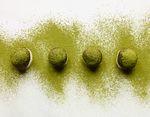Combat cold and flu season from the kitchen.
You've probably heard the adage: "Feed a cold, starve a fever." Well, here's a better idea: Eat to prevent colds and fevers by lacing your diet with foods that have naturally antibiotic properties. Doing so will not only boost overall health but will also help strengthen immunity, balance the good and bad bacteria in your gut and give you a better shot at fighting off bugs.
Using food as medicine, including preventative medicine, is a much smarter idea than popping antibiotics. Not only does taking unnecessary antibiotics add to the epidemic of drug-resistant superbugs, but antibiotics don’t kill viruses — they only treat bacterial infections, so taking them for viral illnesses (like colds and the flu) is futile — and harmful to your future health.
Instead, focus on foods that boost immunity — aka ingredients, herbs and spices that minimize the need for medication. Here are a few tasty ideas:
1. Extra-Virgin Coconut Oil
A tasty antimicrobial and antifungal food, extra-virgin coconut oil (EVCO) contains all-powerful lauric acid. The body converts lauric acid into monolaurin, which helps smack down certain types of viruses and pathogenic bacteria. Try adding EVCO to smoothies for a tropical flavor.
In addition, it’s also great for brain health. Use moderate heat (up to the smoke point of about 350 degrees) when cooking with EVCO, and always buy organic and unprocessed versions to avoid chemical solvents, preservatives and additives.
2. Garlic
Chopped, crushed or sliced, raw garlic is a powerful, pungent medicinal food with known anti-viral, anti-fungal and antibiotic properties that have helped mankind fend off flu and cold viruses for thousands of years. To get the best of what garlic has to offer, crush a few cloves and let them sit out for 10 to 15 minutes before using them to aid in the release of additional health-boosting chemical compounds.
3. Turmeric
Think of turmeric as the multi-tasking superhero of spices. It has well-known anti-inflammatory, anti-viral, anti-bacterial and anti-tumor properties. In other words, turmeric fights for your health on multiple levels.
This bright yellow spice boosts mitochondrial health (mitochondria are the powerhouse of our cells), reducing the amount of free radicals produced by aging or dying mitochondria. Not a fan of curries? Then take a curcumin supplement to boost benefits.
RELATED: Reap the Powerful Benefits of Turmeric

4. Honey
Another antiviral food, honey has been used medicinally for centuries. Roman soldiers used to slather honey on battle wounds to prevent infection, and it’s thought to have been used as far back as the Stone Age as both a food and a medicine. Known for its ability to fight back against some 60 species of bacteria as well as various fungi and viruses, honey is also loaded with health-supportive antioxidants — just one more reason wellness enthusiasts are sweet on the stuff. Just make sure it’s raw and don’t use too much!
5. Ginger
Fresh raw ginger is another good-for-you food that has an antibiotic effect on foodborne pathogens. While not a cure-all, eating some fresh ginger before meals can offer an extra layer of protection from illnesses such as salmonella and listeria. Ginger also helps quell indigestion.
6. Fermented Food
While not antibiotics per se, fermented food delivers plenty of health-boosting protection to help make you more resilient and better able to repel viral and bacterial pathogens. When you eat fermented food (such as sauerkraut, miso and kimchi) you’re fortifying your gut with probiotics — good bacteria that boost the health of the belly, protecting it against the organisms that can make you sick. Fermented food help balance gut bacteria and stomach acids, release enzymes to ease and improve digestion, and make it easier for your body to extract and absorb more nutrients from the foods you eat.
RELATED: 6 Ways an Out-of-Balance Gut Affects Your Well-Being




